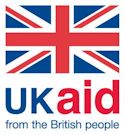Groundwater resilience to climate change and abstraction in the Indo-Gangetic basin

The Indo-Gangetic basin (IGB) aquifer is one of the world's most important transboundary water resources and the most heavily exploited aquifer in the world. Despite this, there are few, if any, studies discussing the transboundary hydrogeology of the aquifer system.
This three-year research programme, funded by the Department for International Development (DFID), has strengthened the evidence base linking groundwater resources, climate variability and abstraction with emerging policy responses in the IGB.
This project was funded by the DFID South Asia research hub and ran from 2012 to 2015.
Research objective
The aim of the project was to improve and develop new understanding of the IGB aquifer at a transboundary-scale. There were two main objectives:
- develop a strategic overview assessment of the occurrence and status of groundwater resources in the IGB
- strengthen the evidence base linking groundwater resources, climate and abstraction, through a series of case studies
Final project outputs
- Final project report
- The publication Groundwater quality and depletion in the Indo-Gangetic Basin mapped from in situ observations, which reveal that sustainable groundwater supplies in the aquifer are constrained more extensive groundwater contamination than depletion — published in Nature Geoscience.
- A series of new transboundary aquifer maps, developed to provide new high-resolution information on groundwater abstraction, groundwater-level trend, salinity and arsenic, and estimated groundwater storage at aquifer scale.
- Seven new major groundwater typologies that provide a new lens through which to view the IGB aquifer and delineate areas with distinct sets of challenges and opportunities for groundwater development. Paper submitted to Hydrogeology Journal.
- New key field data on sustainability of intensive irrigation in north-west India — as published in Geophysical Research Letters.
Research approach
A basin-wide assessment systematically reviewed and collated the best available national, regional and local-scale geological, sedimentological, hydrogeological, hydrochemical, hydrological and climatological datasets for the aquifer. New basin-wide maps and seven major groundwater typologies were developed to illustrate the significant spatial differences in aquifer properties and areas of different resilience to abstraction and climate change.
Targeted case studies examined critical knowledge gaps in groundwater response to climate and abstraction in different parts of the basin. For example:
- response of deeper groundwater in the delta area to intensive pumping
- groundwater and agricultural irrigation in the mid-basin
- groundwater use and storage in the Himalayan foothills
Project team
The project consortium team involved science teams from Pakistan, India, Bangladesh and Nepal, alongside researchers from the UK, USA and The Netherlands. Led by the BGS, the main institutions within the consortium were: IIT Kharagpur, ISET-Nepal, ISET-International, MetaMeta, the National Institute of Hydrology (Roorkee), the Overseas Development Institute (ODI), University College London and the University of Dhaka.
A four-day workshop in Delhi in November 2013 brought together all the project partners to discuss each component of the project, data, case study progress and groundwater typologies framework.
Project timeline
Start date: 01 June 2012
Case studies fieldwork: December 2012–April 2014
Workshops: November 2013
End date: March 2015
Contact
Contact Alan MacDonald for further information.









